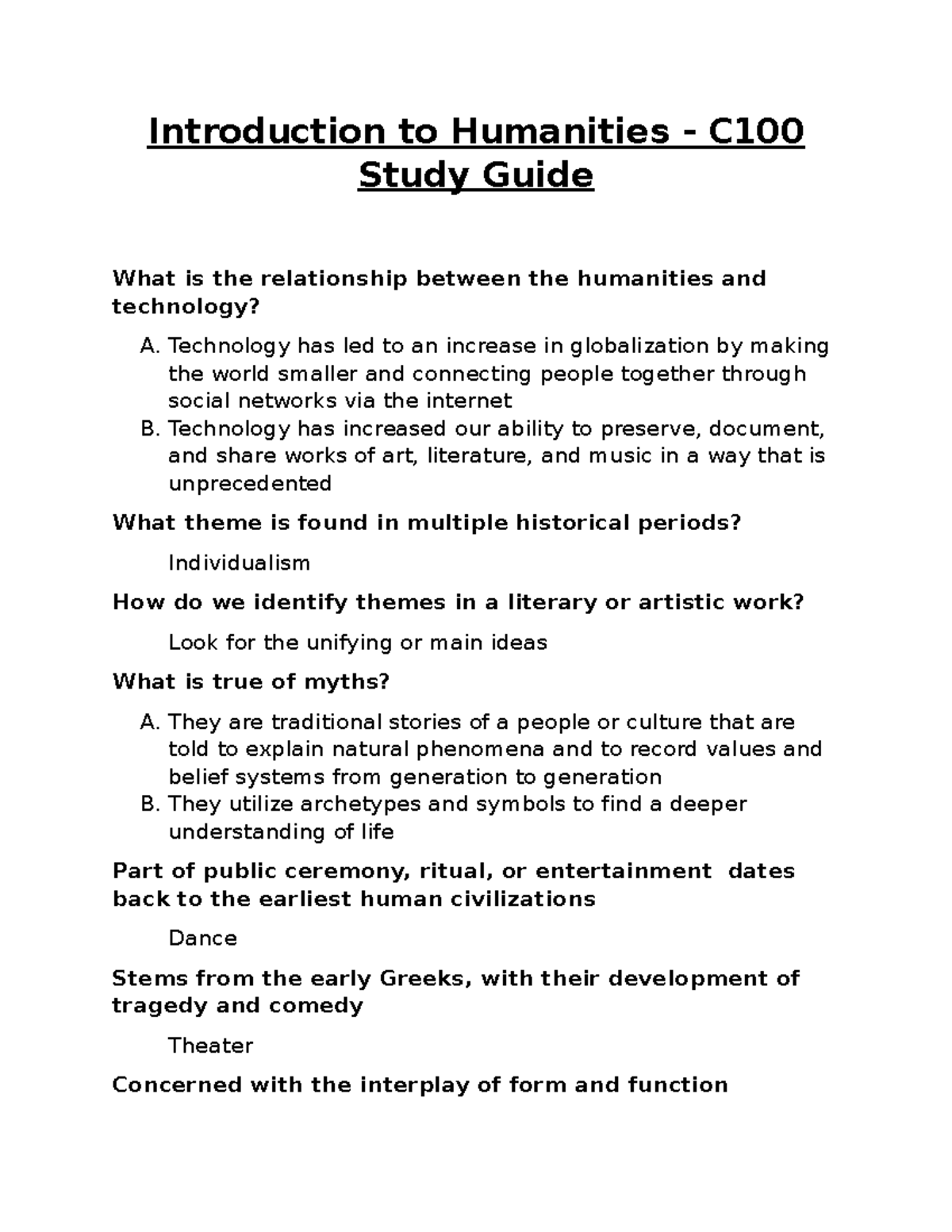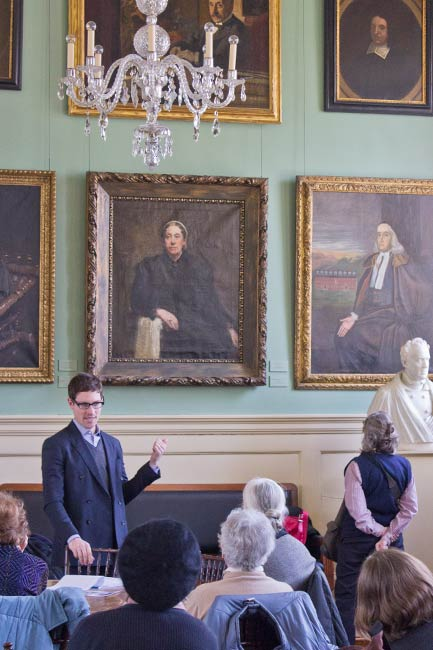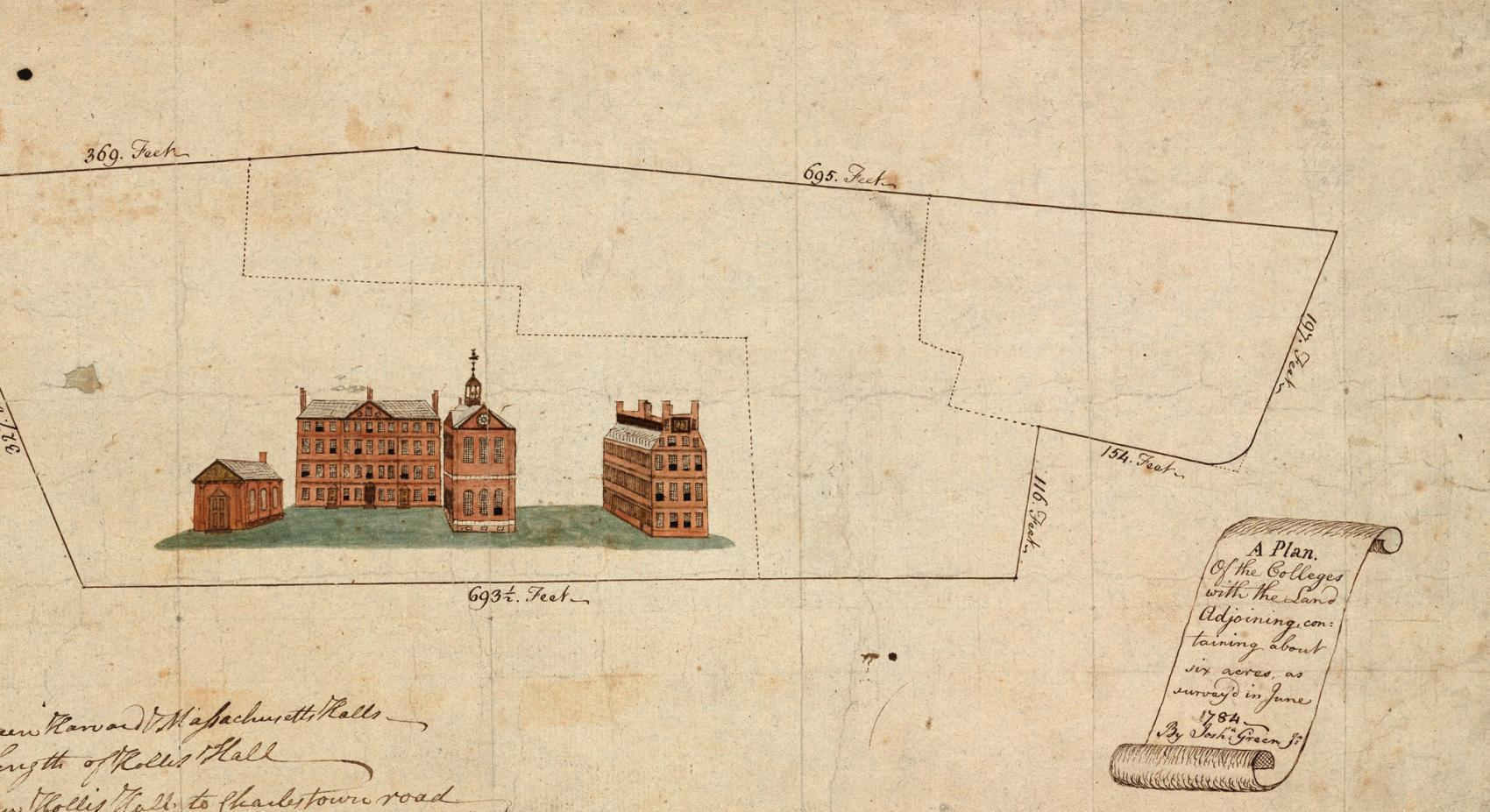Introductory humanities courses play a vital role in shaping students’ academic journeys, particularly among first-year students eager to explore the rich tapestry of human culture and thought. These essential courses, part of an innovative initiative at Harvard, are designed to engage students by igniting their curiosity for the arts and humanities. As enrollment in humanities education faces national declines, enhancing the appeal of these initial experiences becomes crucial for cultivating a new generation of scholars. This initiative not only aims to increase interest in the humanities but also to highlight the intrinsic value of literature, philosophy, and art in understanding the human experience. With professors eager to rethink traditional curricula, the introductory offerings promise to create an inviting atmosphere for students to delve into the complexities of culture and creativity.
The foundational courses in the field of humanistic studies serve as essential entry points for students embarking on their academic paths. By exploring the various dimensions of culture, literature, and philosophical inquiry, these classes encourage learners to think critically about their own lives and the world around them. Given the current trends in higher education, where engagement in the arts and humanities is increasingly paramount, these introductory offerings aim to remind students of the enduring significance of these disciplines. The shift toward more captivating and relevant topics in these courses seeks to combat the falling interest in humanities studies, especially during the pivotal first year of college. Through this engaging educational approach, students are invited to rediscover the passion for understanding human creativity and thought, paving the way for a deeper appreciation of our shared cultural heritage.
Revitalizing Introductory Humanities Courses
In an attempt to counteract the declining interest in the arts and humanities, Harvard’s Arts and Humanities initiative, spearheaded by Dean Sean Kelly, emphasizes the importance of revitalizing introductory humanities courses. These courses are crucial for first-year students as they set the foundation for future academic pursuits. By introducing nine new engaging options, the initiative aims to attract students back to these essential fields of study, which have historically played a significant role in shaping well-rounded individuals who can navigate complex questions about the human experience.
The fresh approach to these introductory humanities courses not only aims to attract students but also to stimulate their curiosity and passion for the arts. By incorporating diverse topics that resonate with contemporary issues, such as migration and technology, the new offerings encourage students to view humanities education as relevant and transformative. This strategy aligns with findings that suggest an early positive engagement can significantly influence a student’s academic trajectory.
Engaging Students in the Arts and Humanities
Engaging students in the arts and humanities is a fundamental goal of the newly proposed courses. Professors aim to create interactive and thought-provoking environments that encourage students to explore various facets of culture, literature, and philosophy. By introducing subjects like ‘Humanity, Technology, and Creation’ and ‘Migration and Border Crossing in Film and Photography’, the courses are designed to captivate students’ interests and foster critical thinking, making the humanities feel less like an obligation and more like an exploration.
The interdisciplinary nature of these courses also plays a vital role in engaging students. Harvard’s initiative looks to combine elements from different fields within the humanities, such as literature, philosophy, and art, providing a holistic educational experience. This approach helps students see connections between various disciplines, enhancing their appreciation of the arts while fostering a deeper understanding of the world around them.
The Importance of Arts and Humanities in Education
Within the context of education, the arts and humanities serve not only as a means of exploring creativity but as a critical lens through which students can examine societal issues. The upcoming introductory courses will emphasize the intrinsic value of studying these subjects, showcasing how they contribute to a comprehensive education. By analyzing great works of literature and philosophy, students can gain insights into human nature, ethics, and cultural narratives that shape our lives.
Moreover, the courses are structured to encourage dialogue and reflection, vital components of a robust humanities education. As students engage with complex texts and ideas, they develop essential skills such as critical thinking, empathetic reasoning, and articulate expression. These courses ultimately aim to inspire students to appreciate not just the content but also the broader significance of the humanities in fostering informed, compassionate global citizens.
Innovative Course Design in the Humanities
The design of the new introductory humanities courses at Harvard reflects a modern understanding of student needs and interests. Professors have rethought traditional approaches, moving away from rigid, canon-focused curricula towards more dynamic and relevant subject matter. This innovative course design fosters an inclusive environment where diverse voices and perspectives are considered, thus reflecting the contemporary landscape of the arts and humanities.
Additionally, the selection process for these courses involved engaging faculty in discussions about the future of humanities education, ensuring that the final offerings resonate with both instructors and students. The collaborative effort underscores the commitment to creating a curriculum that not only enhances enrollment but also enriches the academic experience, encouraging students to take ownership of their learning in the arts and humanities.
The Role of Faculty in Revamping Humanities Education
Faculty members play a crucial role in the success of the revamped humanities courses at Harvard. By sharing their expertise and enthusiasm for their respective fields, these professors can nurture an engaging and stimulating learning environment. The involvement of such dedicated scholars illustrates a collective effort to make the humanities more accessible and appealing to first-year students, which can significantly impact their long-term engagement with these disciplines.
Moreover, professors are tasked with creating curricula that not only convey essential knowledge but also inspire students to question and explore. This mentorship not only aids in academic growth but also fosters a lifelong love for the arts and humanities. As such, faculty engagement is not just about improving enrollment figures but also about nurturing the next generation of thinkers and innovators.
Challenges Facing Humanities Education
Despite the promising changes being implemented, humanities education faces significant challenges. One of the primary issues is the pervasive misconception that these fields lack practicality and are not aligned with career-oriented goals. This belief can deter students from pursuing arts and humanities courses, leading to declining enrollment and interest. As a result, initiatives like Harvard’s become essential in reshaping perceptions and demonstrating the value of a humanities education.
Addressing these challenges requires an ongoing dialogue between educators, students, and institutions. By emphasizing the relevance of the humanities to contemporary global issues and personal development, educators can counteract negative stereotypes while highlighting how skills gained through studying the arts are applicable in a variety of professional contexts. Thus, overcoming these hurdles is vital to sustaining and revitalizing the humanities in education.
The Future of Arts and Humanities Education
Looking forward, the initiative led by Dean Sean Kelly represents a beacon of hope for the future of arts and humanities education. By reimagining how introductory courses are taught, Harvard is setting a new standard for engaging students in meaningful and relevant ways. The forward-thinking approach taken by the faculty sets the stage not just for enrollment spikes but for genuine intellectual curiosity and lifelong learning.
Ultimately, the success of these new courses will depend on their ability to resonate with students’ interests and life experiences. As students navigate a rapidly changing world, the arts and humanities can provide invaluable insights and frameworks for understanding complex issues. Thus, the future of humanities education hinges on its capacity to adapt, innovate, and inspire a new generation of thinkers, creators, and leaders.
Integrating Technology in Humanities Classrooms
In our increasingly digital world, the integration of technology into humanities classrooms has become imperative. The upcoming courses at Harvard aim to utilize various technological tools to enhance student engagement and facilitate deeper learning experiences. Online resources, multimedia presentations, and collaborative platforms can transform traditional lectures into interactive discussions, enabling students to connect more dynamically with the material.
However, this integration also requires thoughtful consideration of pedagogical strategies. Professors must strike a balance between leveraging technology and maintaining the rich human connections that define humanities education. By embracing both innovative tools and traditional methods, educators can create a more holistic learning environment that encourages exploration, creativity, and critical thought in the study of the arts.
The Power of Storytelling in Humanities Education
Storytelling is a powerful tool within humanities education, allowing for the exploration of complex themes and shared human experiences. The newly proposed courses will emphasize the influence of storytelling across various mediums, from literature to film, illustrating how narratives shape our understanding of the world. By engaging with diverse stories, students can reflect on cultural contexts and their implications, fostering a deeper empathy and connection to various communities.
Moreover, the act of storytelling itself is a vital component of the educational process. As students learn to articulate their thoughts and perspectives, they hone their communication skills and develop confidence in expressing their ideas. Creating their own narratives allows them to critically engage with the material and the world around them, reinforcing the transformative potential of a humanities education.
Frequently Asked Questions
What are introductory humanities courses and their purpose in humanities education?
Introductory humanities courses are foundational classes designed to engage first-year students with essential concepts, texts, and debates within the field of humanities. The purpose of these courses is to provide a broad understanding of human culture, creativity, and thought, while inspiring students to explore further into arts and humanities disciplines.
How do introductory arts and humanities courses attract first-year students?
Introductory arts and humanities courses aim to attract first-year students by offering engaging content that reflects contemporary issues and human experiences. By incorporating relevant topics, such as literature, philosophy, and creative writing, these courses are crafted to connect with students’ interests and encourage them to delve deeper into humanities education.
What types of subjects are typically covered in first-year humanities courses?
First-year humanities courses generally cover a variety of subjects including literature, history, philosophy, art, and cultural studies. They may also explore intersections with contemporary themes like technology in the humanities, ethics, and social justice, all of which serve to captivate students’ attention and promote critical thinking.
How does Harvard’s humanities initiative enhance introductory courses?
Harvard’s humanities initiative enhances introductory courses by introducing innovative programs that engage students with compelling subject matter and diverse teaching methods. This initiative aims to reshape the approach to humanities education by fostering a deeper appreciation for human culture, encouraging first-year students to perceive the intrinsic value of studying arts and humanities.
What is the impact of engaging students in humanities on their academic journey?
Engaging students in humanities has a profound impact on their academic journey by fostering critical thinking, creativity, and a better understanding of societal issues. Students who take introductory humanities courses often develop enhanced analytical skills and a lifelong appreciation for the arts, which can enrich their personal and professional lives.
Why is the study of humanities important for first-year students?
The study of humanities is crucial for first-year students as it helps them explore fundamental questions about human existence, society, and culture. It equips them with the skills to analyze complex texts, interpret various forms of art, and engage in thoughtful discussions, laying a strong foundation for their academic pursuits and future careers.
What are some examples of courses included in the introductory humanities curriculum at Harvard?
Examples of introductory humanities courses at Harvard include ‘Introduction to the Medical and Health Humanities,’ ‘Bob Dylan the Classic,’ and ‘Migration and Border Crossing in Film and Photography.’ These courses are designed to intrigue students and emphasize relevant cultural discussions within the humanities.
How do introductory courses prepare students for advanced studies in the humanities?
Introductory courses prepare students for advanced studies in the humanities by providing essential knowledge and skills necessary for higher-level coursework. They introduce foundational concepts, critical theories, and diverse texts that equip students with the analytical tools needed to engage with complex discussions in their future studies.
What distinguishes Harvard’s approach to introductory humanities courses from other institutions?
Harvard’s approach to introductory humanities courses is distinguished by its emphasis on innovative themes, interdisciplinary learning, and fostering intrinsic value in the humanities. The focus on engaging material and conversation-driven learning models is designed specifically to appeal to first-year students who may be considering various academic paths.
How can first-year students select the right introductory humanities course for their interests?
First-year students can select the right introductory humanities course by exploring course descriptions, attending informational sessions, and considering their personal interests in topics such as literature, art, philosophy, or cultural studies. Engaging with faculty and upperclassmen can also provide insight into which courses may best align with their academic goals.
| Key Points | Details |
|---|---|
| Introduction of New Courses | Nine new introductory courses will be launched in Arts and Humanities to engage first-year students. |
| Enrollment Issues | Only 12% of first-years are interested in arts and humanities, with half changing their minds before declaring a concentration. |
| Inspiration from Other Departments | The Philosophy department’s shift in focus contributed to a significant increase in concentrators. |
| New Course Examples | Upcoming courses include ‘Introduction to the Medical and Health Humanities’, and ‘Bob Dylan the Classic’. |
| Teaching Methodology | Courses aim to combine critical analysis with practical application, engaging students’ creativity. |
| Humanities’ Value | Courses emphasize the intrinsic value of the humanities beyond their practical applications. |
Summary
Introductory humanities courses are aimed at rekindling students’ interest in the arts and humanities through engaging, thought-provoking content. This initiative recognizes the need to capture first-year students’ attention and offer them a meaningful experience in these fields. By introducing innovative and diverse courses, the program seeks not only to improve enrollment but also to enrich students’ understanding of human culture. Through these efforts, the humanities can inspire students to appreciate the profound impact of literature, art, and philosophy on their lives and society.



